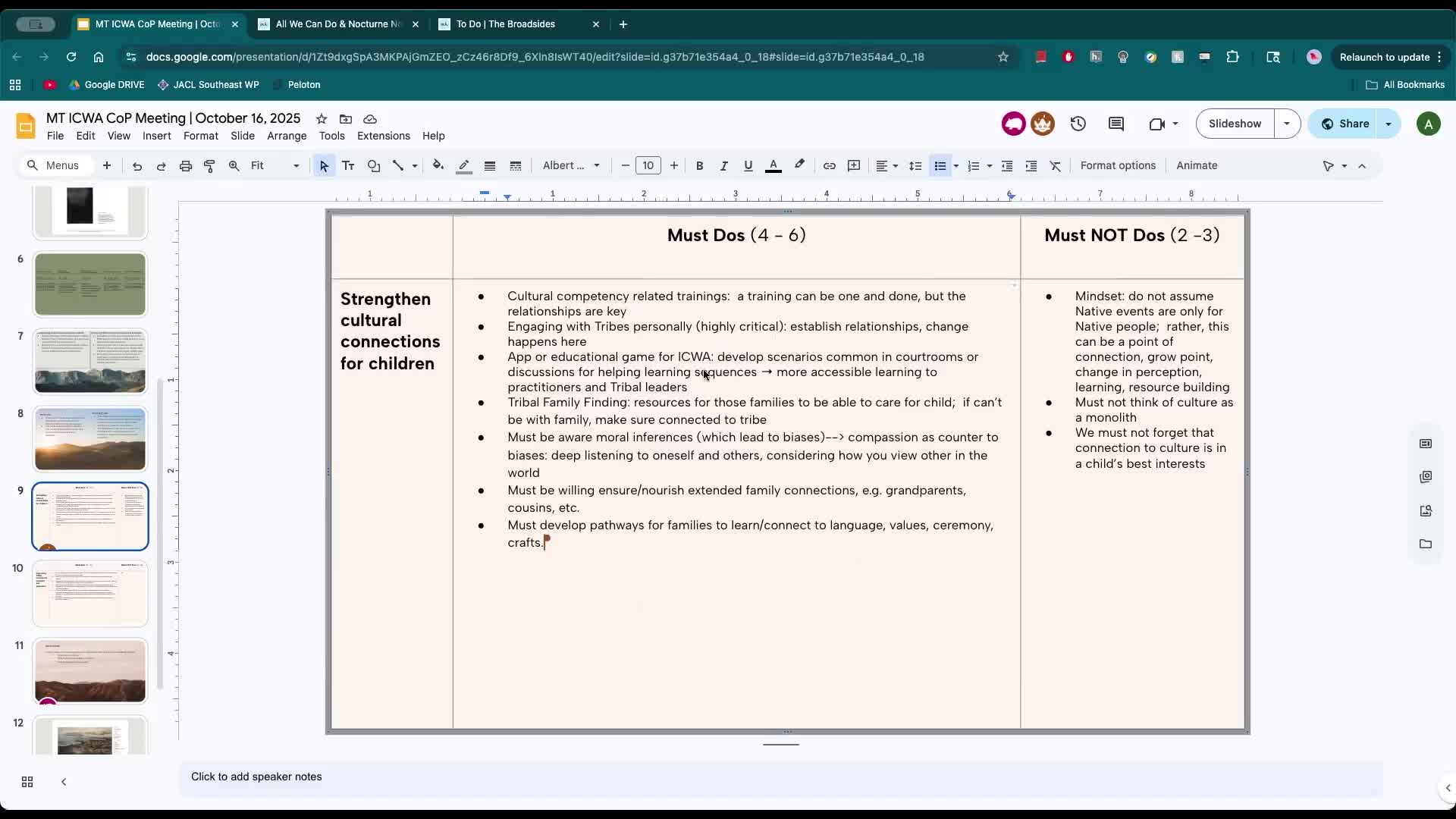COP members call for broader outreach partnerships, attention to tribal staffing and better notice practices
Get AI-powered insights, summaries, and transcripts
Subscribe
Summary
Participants said outreach must account for tribal staffing limitations and proposed a micro/meso/macro framework: case-level advocates, tribal representation in state policy tables, and better notice and enrollment verification practices.
During the meeting’s review of 2025 priorities, participants identified improving tribal community outreach and education as a second core imperative. The outreach discussion focused on practical barriers — especially tribal staffing capacity — and on structural steps agencies and partners could take to reduce burdens on tribal ICWA programs and increase meaningful collaboration.
Kathy reported that many tribal ICWA programs are small — often one or two staff — yet receive hundreds of ICWA notices and inquiries a year; participants said that reality shapes what outreach is feasible for tribal programs. "The capacity thing is real," one participant observed, and others framed that constraint as a central implementation challenge.
Group members proposed a layered outreach framework: micro (case-by-case advocacy and follow‑the‑child monitoring), meso (state agency practices and including tribal representatives at Montana policy tables), and macro (research and system-level practice change). Sheldon argued for tribal representation in policy-making spaces in Helena and suggested tightening notice due diligence to avoid unnecessary or duplicative notices that overload tribal staff.
Participants discussed concrete proposals to reduce workload and improve communication. Suggestions included creating broader partnerships beyond ICWA counselors so outreach is not routed only to a single tribal staffer; developing a reliable way to identify enrollment and obtain key documents (CIBs, kinship reports) for eligibility verification; and seeking tribal or state funding to add tribal ICWA positions where caseloads require it.
Dana described efforts in which a tribal staffer follows a child’s case across state lines to monitor placement and court events. Bertie emphasized the practical need for enrollment information and kinship documentation in out-of-state cases and said much of her work involves processing those inquiries. Participants also raised the idea of a centralized resource or handbook to help state workers and foster families find tribal contacts and cultural resources without repeatedly burdening tribal staff.
The group agreed to have Ashley and the design team clean and post the compiled imperatives and notes on the CIP website and to share the materials with partner agencies for next steps.
